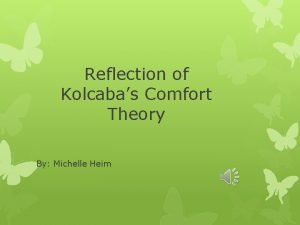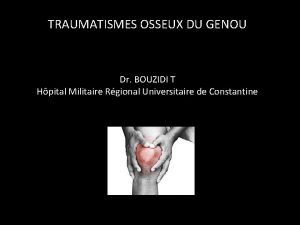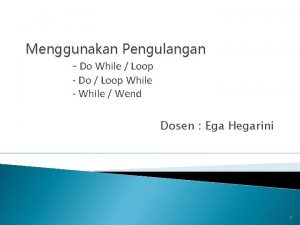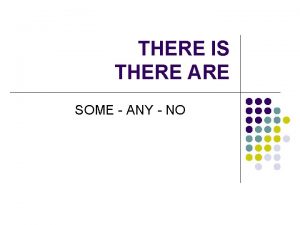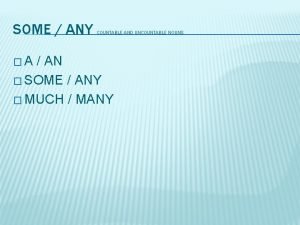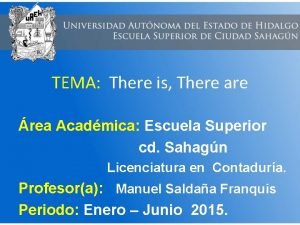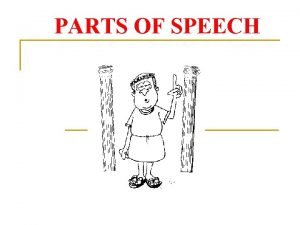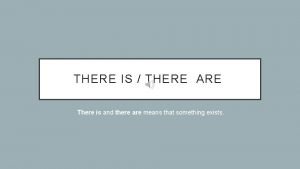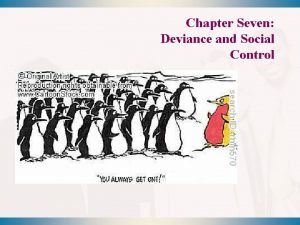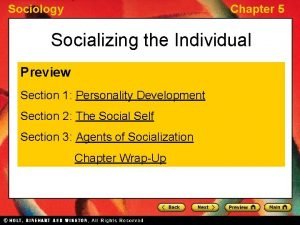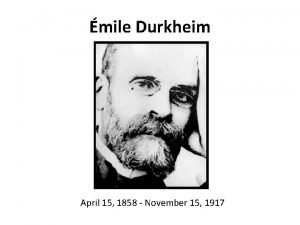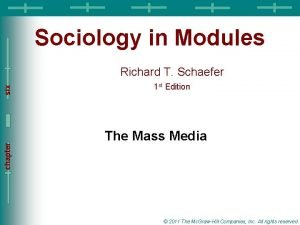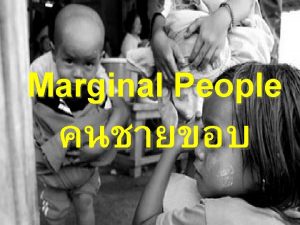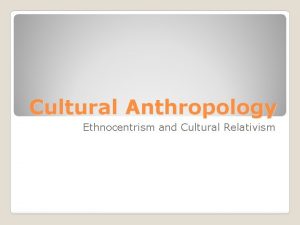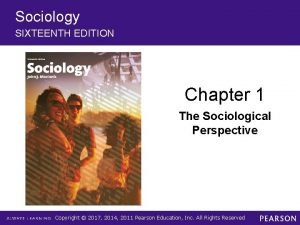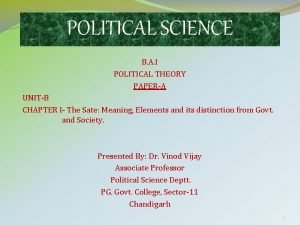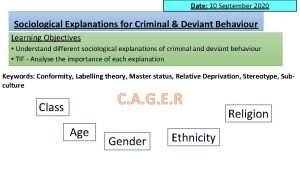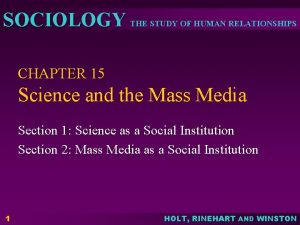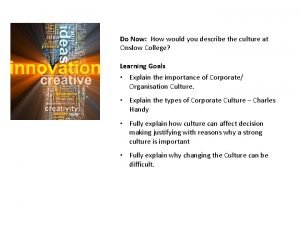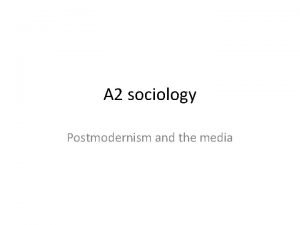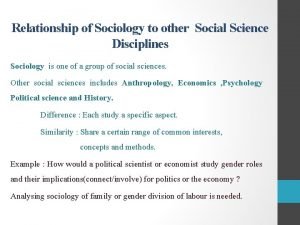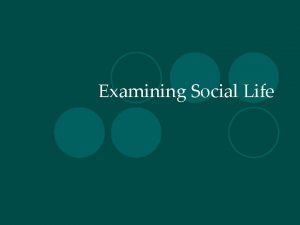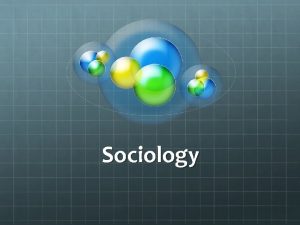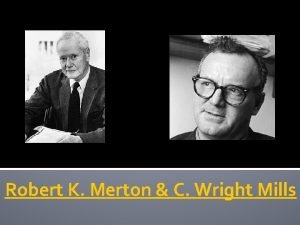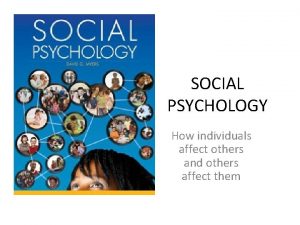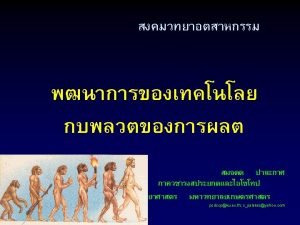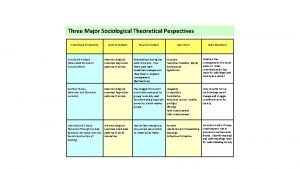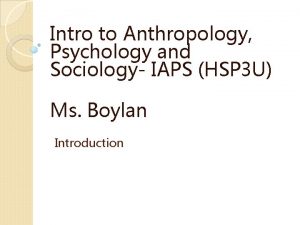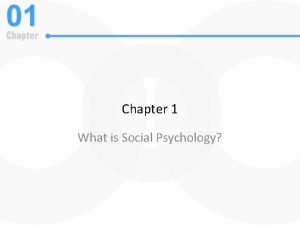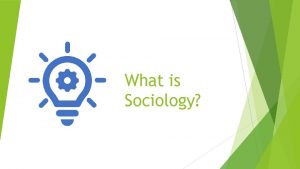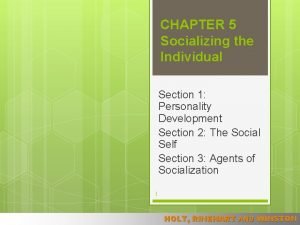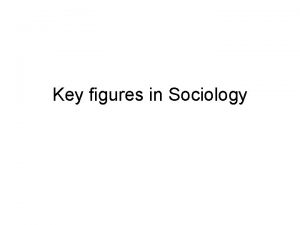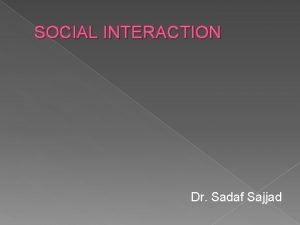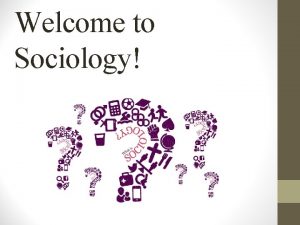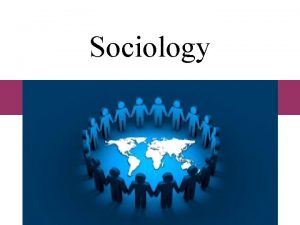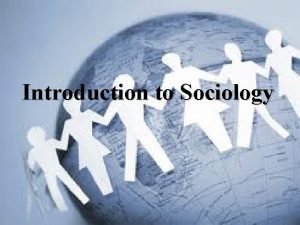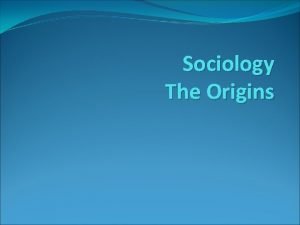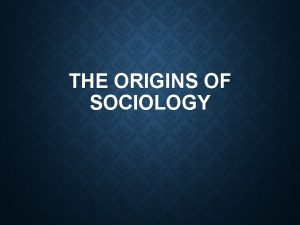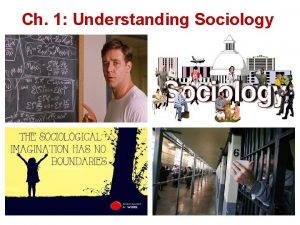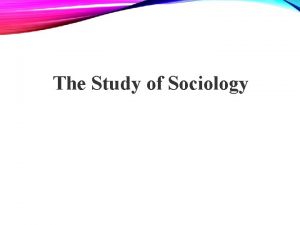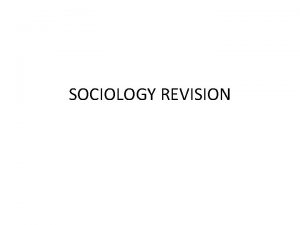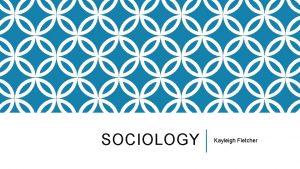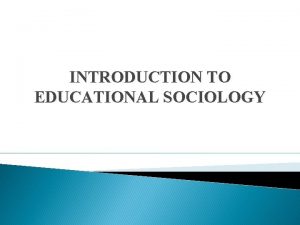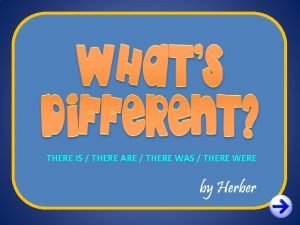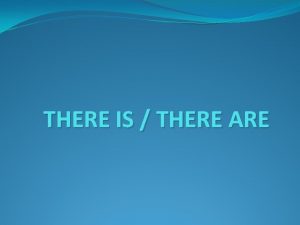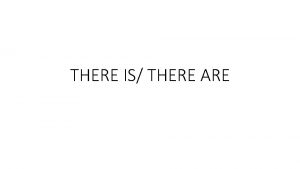Welcome To Sociology Mr Heim While there is






























































- Slides: 62

Welcome To Sociology! Mr. Heim

While there is no requirement that you associate with others like you, people tend to seek out others who share similar interests or are involved in the same activities

So…what’s a “typical” person look like? • • • Sex? Age? Race? Income? Traits? Characteristics? • Make a list with the people near you • Make a composite sketch (yes, you must draw!)

So…what’s a “typical” person look like?

Wha t is S ocio lo gy? You have two minutes to discuss with the person next to you and write a SHORT one line definition.

SOCIOLOGY IS A NEW WAY TO LOOK AT THE WORLD AROUND YOU




Does that actually answer the question? Sociology Orderly – apply theoretical perspective and research materials • Is the systematic study of human society and social interaction. Large social group. They share: 1) Geographical Territory 2) Political Authority 3) Cultural Expectations Interactions between the individual and the group (vise versa) AND how they effect each other

How have things changed…. • Do’s and Don’ts of Dating, 1950. • A Public Service Announcement • Shown to high school students. • Write down at least 4 points. – What is funny/strange in this video? – What is something that strikes you? – What do you find different?

Do’s and Don’t of Dating

Why have things changed?

Sociological Perspective �A view that looks at behavior of groups, not individuals �Sociologists might explain events in the following ways 1. Teens commit suicide because of peer group expectations of performance, materials possessions and physical appearance 2. Young men join gangs because they have been taught by their society to be “masculine” 3. More women divorce because of the social trend toward sexual equality �Note: Sociologists do not speak of a young man, a married woman or a teenager in the examples above, they concentrate on categories of people.

George Carlin Football vs. Baseball

How does George Carlin describe and compare these two sports.

Review • What is sociological perspective? – And give me an example

Why Study Sociology? • Empowers us to be active participants in our society. • Helps us to live in a diverse world. • Encourages us to realize that society guides our thoughts and deeds Social Norms! – to see the strange in the familiar

Sociological Imagination • The ability to see the relationship between individual experiences and the larger society. Private v. Public Issues

What are the benefits of a sociological imagination? • Gives us the ability to assess the truth. • Gives us the ability to assess opportunities and constraints. • Empowers us to participate actively in society. • Allows us to recognize human variety and confront the challenge of living in a diverse world.

The Sociological Imagination Allows Us To… • “An awareness of the relationship between an individual and the wider society, and …the ability to view our society as an outsider might, rather than relying only on our individual perspective, which is shaped by our cultural biases” • In what other ways can social imagination help us in our lives? 21

Sociological Imagination Public Issues Private Issues • Occurs within an individual or within the range of his/her immediate relations with others. • These have to do with one’s “self” • Personal troubles are “private matters” • “Solutions” appear to stem directly from individual decisions. Vs . • Have to do with matters that transcend the individual…especially his/her inner life. • They have to do with larger social systems and historical process. • Issues are public matters that in some way affect everyone in a given collectivity. • “Solutions” transcend individuals.

EXAMPLE ONE Eating Disorders • History of Eating Disorders • Cause of Eating Disorders – When viewed as “personal trouble” • Cause of Eating Disorders – When viewed as “public issue”

Some stats… • 5 -10 million girls and women and 1 million boys and men are struggling with eating disorders • 42% of 1 st-3 rd grade girls want to be thinner • 51% of 9 and 10 year-old girls feel better about themselves if they are on a diet • The average American woman is 5'4" tall and weighs 140 pounds. The average American model is 5'11" tall and weighs 117 pounds. Most fashion models are thinner than 98% of American women • Because of the secrecy and shame associated with eating disorders, many cases are probably not reported. In addition, many individuals struggle with body dissatisfaction and sub -clinical disordered eating attitudes and behaviors. For example, 80% of American women are dissatisfied with their appearance

Debt! Personal Issue or Public? More Examples.

Discussion • Fresh Prince Extended Introduction • What problems led Will’s mother to ship him off to Bel -Air? • Were these personal troubles or public issues? • It is sometimes difficult for Americans to recognize public issues. Why do you think this is?

Is Soc Nothing More Than Stereotypes? • Myth: a popular but false notion that may be used to perpetuate certain beliefs even in the light of conclusive evidence to the contrary. – i. e Money can buy happiness – What are some other myths that are socially untrue? • Stereotypes: overgeneralizations about the appearance , behavior or other characteristics of members of particular categories

Individual experiences and perceptions are influenced by: • Race: groups of people distinguished by physical characteristics such as skin color. • Ethnicity: the cultural heritage or identity of a group based on factors such as language or country of origin. • Class: the relative location of a person or group within the larger society, based on wealth, power, prestige, or other valued resources.

Individual experiences and perceptions are influenced by: • Sex: the biological and anatomical differences between females and males. • Gender: the meanings, beliefs, and practices associated with sex differences, referred to as femininity and masculinity. • How might your perception be bias?

THE ORIGINS OF SOCIOLOGICAL THINKING

The Origins of Sociological Thinking • The first systematic analysis of society is found in the philosophy of the early Greeks. • The scientific revolution of the seventeenth century inspired social thinkers to believe that advances could be made in the systematic study of human behavior.

The Origins of Sociological Thinking • In France, the Enlightenment was dominated by the philosophers, including Montesquieu and Rousseau • They believed human society could be improved through scientific discoveries. • If people were free from the ignorance of the past, they could create new forms of political and economic organization, which would produce wealth and destroy the aristocracy.

Sociology and the Age of Revolution, Industrialization, and Urbanization • The Enlightenment produced an intellectual revolution • Views of the philosophers regarding equal opportunity stirred political and economic revolutions in America and France. • The Industrial Revolution occurred in the 19 th and 20 th centuries, when economic, technological, and social changes occurred as technology shifted from agriculture to manufacturing.

Sociology and the Age of Revolution, Industrialization, and Urbanization • Industrialization is the process by which societies are transformed from dependence on agriculture and handmade products to an emphasis on manufacturing and related industries. • Urbanization is the process by which an increasing proportion of a population lives in cities rather than in rural areas.

THE DEVELOPMENT OF MODERN SOCIOLOGY

August Comte (1798 -1859) • French philosopher who is considered the “founder of sociology” and also coined the term • Comte’s philosophy became known as positivism — a belief that the world can best be understood through scientific inquiry • Comte believed objective, bias-free knowledge was attainable only through the use of science rather than religion • Theorized about social statics (forces for social order and stability) and social dynamics (forces for conflict and change)

Comte's positivism had two dimensions: • Methodological: the application of scientific knowledge to physical and social phenomena. • Social and political: the use of such knowledge to predict the likely results of different policies so that the best one could be chosen.

Emile Durkheim (1858 -1917) �Probably most influential of early thinkers �How do societies manage to stay together? �Social bonds exist in society to ensure stability �Stressed that people are the product of their social environment �Important concepts �Social facts-patterned ways of acting, thinking, and feeling that exist outside any one individual but that exert social control over each person � Examples: norms, values, religious beliefs and rituals �Anomie-a condition in which social control becomes ineffective because of the loss of shared values and a sense of purpose in society

What is the “glue” that holds societies together? What provides people with a sense of belonging? Why are these bubbles coming out of my head?

Karl Marx (1818 -1883) �German economist and philosopher �Viewed history as a clash between conflicting ideas and forces. �Viewed class conflict as the struggle between members of the capitalist class, or bourgeoisie and the working class or proletariat. �Believed class conflict produced social change and a better society. �Alienation: feelings of powerlessness and estrangement from other people �Proletariat would feel exploited by the bourgeoisie and therefore, become alienated

Conflict is necessary to produce social change and a better society I think today I will establish a free and classless society I, too, have these bubbles popping out my head!

Max Weber (1864 -1920) • He disagreed with Marx’s idea that the economy is the central force in social change • Believed sociologists should rely on verstehen, or the ability to see the world as others see it • Studied rationalization: the mindset that emphasizes using knowledge, reason and planning over tradition, emotion or superstition (common in preindustrial societies)

Sociology should be valuefree – it should exclude the researcher’s personal values and economic interests It really isn’t possible for sociologists to be value-free is it? Then, we need to gain the ability to see the world as others see it

Beginnings of Soc in the US • First department of Soc was at the University of Chicago (aka the Chicago School) – Faculty started the ASA (American Sociological Association) • Next known Sociology department was at Atlanta University • Then, an African-American school – W E B Du Bois

Contemporary Theoretical Perspectives • Theory: a set of logically interrelated statements that attempt to describe, explain, and predict social events – Provides us with a framework, perspective or an overall approach that allows us to examine aspects of social life

Sociology is all about perspective

Four Major Perspectives: 1. 2. 3. 4. Functionalist (structural-functional) Conflict (or social-conflict) Symbolic-interaction Postmodernist (New guy on the scene!)

Functionalist Perspectives • Studied on a macro-level; examines whole societies, social structures and systems versus individuals • Functionalist perspectives are based on the assumption that society is a stable, orderly system • Society is composed of interrelated parts, each of which serves a function and contributes to the overall stability of society • Societies develop social structures or institutions because they play a part in helping society survive – i. e. family, education, government, religion and economy

Famous Functionalist Peeps • Talcott Parsons – Stressed that all societies must make provisions for meeting social needs in order to survive – Example: A division of labor between husband wife is essential for family stability and social order

Famous Functionalist Peeps cont. . . Robert Merton – Distinguished among manifest, latent and dysfunctions of institutions – Manifest functions are intended and overtly recognized by the participants in a social unit. • Manifest function of school: learn stuff – Latent functions are unintended functions that are hidden and remain unacknowledged by participants. • Latent function of school: make friends – Dysfunctions are undesirable consequences. • When schools worry more about a number, than the kid themselves (i. e. standardized testing)

Mean Girls: The Lunchroom

Conflict Perspectives: • Also studied on a macro-level • Conflict perspectives see groups in society as engaged in a continuous power struggle for the control of the scarce resources. • Conflict may take the form of politics, litigation, negotiation or family discussions.

Conflict Perspectives: • Not one unified theory but several branches • The neo-Marxist approach stresses class conflict • A second branch focuses on racial-ethnic inequalities • The feminist branch focuses on gender issues

Famous Conflict Peeps • George Simmel (conflict and cooperation) • Karl Marx (constant class conflict) • Max Weber – Believed power and prestige were sources of inequality as well as economic conditions – Defined power as the ability to carry out your will despite resistance from others – Defined prestige as a positive or negative estimation of honor

Conflict Perspective and the Feminist Approach • Pays specific attention to women’s experiences and the importance of gender • Basic assumption that men and women are equal and should be given equal rights • Assumes we live in a patriarchy, or a system in which men dominate women • Believe society reinforces social expectations through social learning acquired through major institutions

What about shopping? • How does shopping tie into the conflict perspective? • What do you look for when you are shopping? Certain brands?

Symbolic Interactionist Perspectives • The symbolic interactionist approach is a micro level analysis focusing on small group rather than whole societies or large scale social structures (i. e macro level). • Interaction amongst people based on mutually understood symbols or the role that symbols play in human communication – Red light= STOP • No mutual recognition of this symbol leads to chaos • According to symbolic interactionists, society is the sum of interactions of individuals and groups.

Symbolic Interactionist Perspectives • A symbol is anything that meaningfully represents something else—signs, facial expressions, gestures, or words. – A symbol is something observable that represents something not observable • Mascot = team loyalty • American Flag = symbol of the US • Symbols help people derive meaning from social situations. • Individual personalities and the self are developed from social experience.

Symbolic Interaction Example • Symbols may include wedding bands, vows of life-long commitment, a white bridal dress, a wedding cake, a Church ceremony, and flowers • Society attaches meanings to these symbols, but individuals also maintain their own perceptions of what the symbols mean. • One spouse may see their circular wedding rings as symbolizing “never ending love, ” while the other may see them as a financial expense. Faulty communication can result from differences in the perception of the same events and symbols.

Famous Symbolic Interactionist Peeps • George Herbert Mead – Founder of microlevel analysis – Symbols are anything that meaningfully represents something else – Symbols must be interpreted in the same way to produce a shared reality – Identity of self results from symbolic interaction with others

Famous Symbolic Interactionist Peeps • Erving Goffman – Developed idea of dramaturgical analysis • Idea that individuals go through their life like actors on a stage playing out their roles for other people through dress, gestures, tone of voice

Postmodern Perspectives: • Studied at both micro & macro level • Postmodern perspectives argue that existing theories have been unsuccessful in explaining social life in contemporary societies characterized by post-industrialization, consumerism, and global communication • Postmodern societies are based on information technologies and consumerism • Brings into question prior assumptions about social life and the nature of reality
 Jim skogsbergh
Jim skogsbergh With whom do booth and herold stay at locust hill farm?
With whom do booth and herold stay at locust hill farm? Michelle heim
Michelle heim Spinotuberositaire
Spinotuberositaire Cullman middle school bell schedule
Cullman middle school bell schedule Ferrarischule innsbruck lehrer
Ferrarischule innsbruck lehrer Shirley heim middle school
Shirley heim middle school Boulan park middle school calendar
Boulan park middle school calendar Shirley c heim middle school calendar
Shirley c heim middle school calendar Perbedaan for while do while
Perbedaan for while do while Welcome welcome this is our christmas story
Welcome welcome this is our christmas story Hay is
Hay is Adjetivos demonstrativos
Adjetivos demonstrativos Ingilizce gramer zamanlar tablosu
Ingilizce gramer zamanlar tablosu There isn't any chicken
There isn't any chicken There is there are countable uncountable nouns
There is there are countable uncountable nouns There's and there are
There's and there are Any nerede kullanılır
Any nerede kullanılır There is there are ejemplos
There is there are ejemplos There is there are exercises
There is there are exercises There is there are
There is there are If there is no struggle there is no progress explanation
If there is no struggle there is no progress explanation Sustantivos en ingles contables
Sustantivos en ingles contables What part of speech is open
What part of speech is open There is there are
There is there are George and tamara doesn't or don't
George and tamara doesn't or don't There is and there
There is and there There is there are negative form
There is there are negative form Anomie definition sociology
Anomie definition sociology Sociology chapter 5 socializing the individual
Sociology chapter 5 socializing the individual What is sociology
What is sociology Durkheim anomie
Durkheim anomie Sociology chapter 1 review
Sociology chapter 1 review Sociology in modules epub
Sociology in modules epub Marginalman
Marginalman What is ethnocentrism in culture
What is ethnocentrism in culture Basic sociological perspectives
Basic sociological perspectives Relation between political science and psychology
Relation between political science and psychology International sociology of sport association
International sociology of sport association Self fulfilling prophecy sociology
Self fulfilling prophecy sociology Sociology the study of human relationships textbook
Sociology the study of human relationships textbook Introduction to anthropology psychology and sociology
Introduction to anthropology psychology and sociology Types of culture in sociology
Types of culture in sociology Postmodernism in sociology
Postmodernism in sociology Relationship between sociology and other disciplines
Relationship between sociology and other disciplines Strain theory sociology
Strain theory sociology Is sociology a social science
Is sociology a social science Sociology jobs
Sociology jobs Isolation in sociology
Isolation in sociology Example of latent function
Example of latent function Sociology vs social psychology
Sociology vs social psychology Sociology is the study of
Sociology is the study of What is acculturation in sociology
What is acculturation in sociology Three major sociological perspectives
Three major sociological perspectives Sociology a level specification
Sociology a level specification Anthropology psychology and sociology
Anthropology psychology and sociology Social psychology and common sense
Social psychology and common sense Cornell notes sociology
Cornell notes sociology Sociology chapter 5 socializing the individual
Sociology chapter 5 socializing the individual Auguste comte
Auguste comte Shat sampatti
Shat sampatti Sociology subject matter
Sociology subject matter Identify the examples of interactional vandalism
Identify the examples of interactional vandalism


